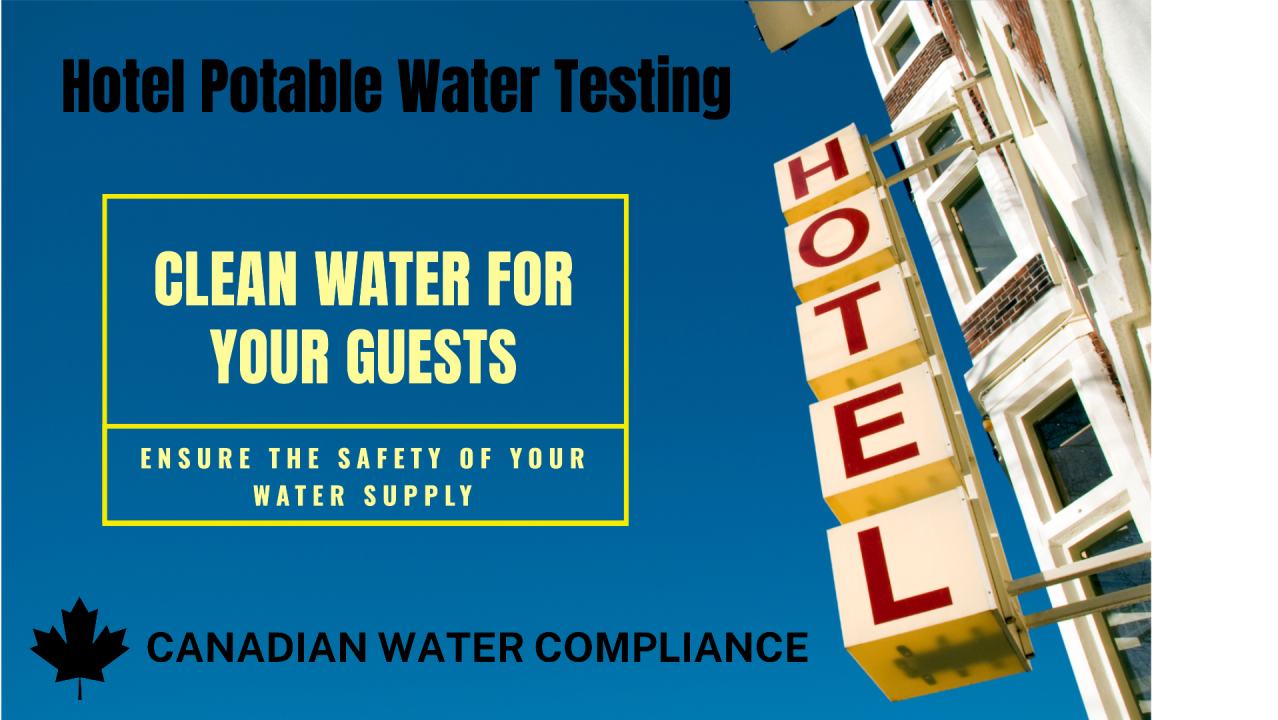
Written By: Canadian Water Compliance | On
Hotels operating in Ontario's Greater Toronto Area (GTA) must adhere to strict potable water testing requirements to ensure the safety and quality of drinking water for their guests and staff. These requirements are governed by provincial legislation and municipal regulations, with a focus on regular testing and compliance.
The primary legislative framework for drinking water safety in Ontario is the [Safe Drinking Water Act, 2002](https://www.ontario.ca/laws/statute/02s32). This Act is supported by [Ontario Regulation 170/03](https://www.ontario.ca/laws/regulation/030170), which outlines specific requirements for drinking water systems. While this regulation primarily applies to large municipal and non-municipal drinking water systems, it provides a foundation for best practices in water quality management that hotels should follow.
For hotels in the GTA, the frequency of potable water testing depends on the size and type of their water system. Generally, microbiological testing for parameters such as E. coli and total coliforms should be conducted on a monthly basis. This aligns with the requirements for large non-residential systems outlined in Schedule 8 of Ontario Regulation 170/03.
Chemical and metals testing is generally required on an annual basis, covering parameters such as lead, nitrates, and other potential contaminants. However, for best practice, monthly or quarterly testing should be conducted.
It's crucial to note that all drinking water samples must be tested within 48 hours of collection to comply with the Safe Drinking Water Act, 2002. This ensures the accuracy and reliability of test results.
In addition to routine testing, hotels must also consider [Legionella testing](https://www.publichealthontario.ca/en/Laboratory-Services/Test-Information-Index/Legionella-Water), especially for systems that include cooling towers or hot water systems. The frequency of Legionella testing should be determined by the hotel's Legionella Bacteria Control Management Plan (LBCMP), which should be reviewed and updated annually.
Hotels are required to maintain detailed records of all water quality tests, including the date of sampling, test results, and any corrective actions taken. These records must be kept for a minimum of five years and made available for inspection by public health authorities.
To ensure compliance, hotels should:
- Bring on a third party organization responsible for the water system test.
- Use laboratories licensed by the [Ministry of the Environment and Climate Change](https://www.ontario.ca/page/ministry-environment-conservation-parks) for water testing.
- Implement appropriate water treatment equipment as specified in regulations.
- Immediately notify the local medical officer of health in case of adverse test results and take necessary corrective actions.
While these requirements primarily stem from provincial regulations, hotels in the GTA should also be aware of any additional municipal bylaws or requirements specific to their location. It's advisable to consult with local [public health units](https://www.health.gov.on.ca/en/common/system/services/phu/locations.aspx) for the most up-to-date and area-specific guidelines.
By adhering to these testing requirements and maintaining rigorous water quality management practices, hotels in the GTA can ensure the safety of their potable water, protect the health of their guests and staff, and maintain compliance with provincial and municipal regulations.